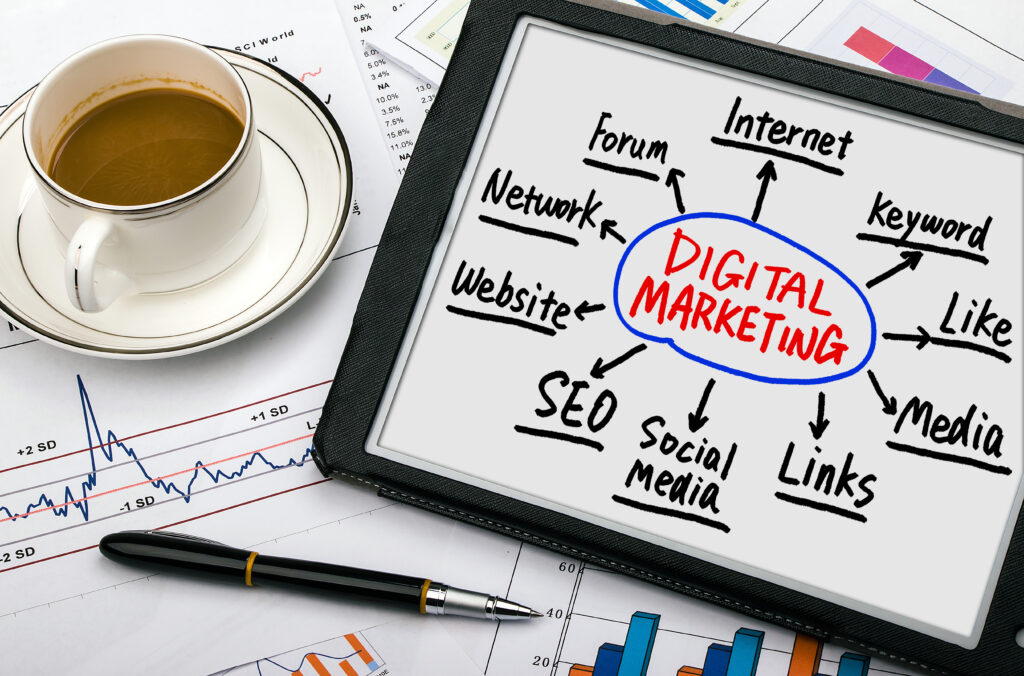First thing’s first: running a small business is never easy. But there are ways to make things easier for yourself.
It all starts with understanding your obligations as a business owner and then putting in place the right tools, structures and protection, so you can focus on the day-to-day. That means finance, insurance, compliance, marketing and more.
Running a small business the easy way
You can’t guarantee that these crucial aspects of running a small business won’t give you a headache (they almost certainly will), but by putting good strategies and solid foundations in place, you’ll be better able to deal with those headaches when they arrive. A pre-emptive painkiller, if you will. Pens at the ready? Let’s get ticking.
Find the right funding for your business

There have never been more funding options available, which means there’s almost certainly a type of finance to suit your needs, but the plethora of options can make it hard to know exactly which is best.
The best way to start is to think about which types are most suitable for your growth stage or ambitions.
Bootstrapping
Bootstrapping is simply growing your business with no external investment. Initially, you’ll use personal savings from friends or family, then you’ll continue to self-finance from consumer sales.
The clearest benefit here is that you have no obligations or debts to anyone else – you retain full control of the business. If you’re targeting rapid expansion and multi-million turnover within a few years, bootstrapping probably isn’t for you, but it’s great for small scale operations that want steady, managed growth.
Credit cards
Getting big loans can be challenging for a business with no track record. But if you have a good credit score, taking out a business credit card is a perfectly legitimate way to finance your business.
As long as you pay off debts in time, credit cards are great because you’re not giving up any ownership of your business. The only downside is that interest can be as high as 15 per cent.
Bank loan
Bank loans are perfect if you have plans that require anything from a few thousand pounds to hundreds of thousands, or even a couple of million. Bank loans can be either short or long term, secured (where you’ll need to use an asset as security) or unsecured (where all you might need is a personal guarantee that you’ll pay back the loan), and usually have flexible repayment schedules.
As you can get approved relatively quickly, they’re a great way to access finance quickly for your immediate growth ambitions.
Related: Best small business loans in the UK
Invoice or asset finance
Invoice finance allows you to raise money against unpaid invoices. Asset finance allows you to pay for large assets in instalments. Both are great for providing capital for short-term plans when you have to be careful with cashflow or aren’t very liquid.
Crowdfunding
Crowdfunding is raising money through a platform from a large group of people, who each commit relatively small amounts. It’s pretty accessible compared to bank loans or institutional investing and, as a bonus, allows you to prove your concept with an engaged audience – and hopefully win some loyal early customers.
Be aware that, if you don’t reach your target, you won’t receive any funding, and a failed campaign could damage your reputation.
Angel investment
A wealthy individual, or group of wealthy individuals, who invest in your business for a minority stake. It’s also a great way to access mentorship: angels are often experienced entrepreneurs and can be very involved in helping your business grow through advice and personal networks.
However, you will have to be comfortable giving away some control of your business, in the form of equity and strategy.
Related: 20 angel investor networks you should know about
Venture capital
This is where the big bucks are. If you’re looking for a massive injection of capital to fuel grand ambitions, venture capital is for you. You’ll also receive strategic advice from experienced investors. Again, you will be giving away a controlling stake in your business, and only businesses that can demonstrate a good track record and serious growth potential will be successful at securing VC funding.
Protect your business with the right insurance

One of your primary responsibilities when running a small business is having adequate insurance in place. It provides financial protection against all manner of accidents or disasters by – in the event of a claim – covering any resulting compensation or legal fees.
However, the sheer variety of insurance types, covering every niche and eventuality, can be overwhelming. Commercial combined insurance is the most hassle-free way to ensure you’re covered for anything that might arise, be it a fire, cyber-attack, or broken arm.
Commercial combined insurance usually includes:
- Employers’ liability insurance – legally required, covers costs in the event that an employee is injured, or their property is damaged while working for you
- Public liability insurance – covers you if a member of the public is injured or their property is damaged on your premises
- Property and business contents insurance – covers you if your business premises is damaged/broken into and its contents are destroyed/stolen
- Stock insurance – covers the cost of replacing stock if lost, stolen or damaged
- Professional indemnity – covers the cost of defending and settling claims for negligence or bad advice
- Legal expenses insurance – specialised insurance for contract and employment disputes, data and tax protection and debt recovery
- Business Interruption insurance – compensates you for loss of income if your business is forced to closed due to anything from a fire to an act of terror
- Trade credit insurance – compensates you if a customer becomes insolvent and can’t pay their debts
- Motor insurance – covers you for injury or property damage caused by, or involving, your business vehicle
- Cyber insurance – covers you for loss of data, reputational damage, and third-party damage caused by a cyber-attack. Damage caused by intellectual property theft is not covered
Related: What insurance do you need for a small business?
Ensure you’re legally compliant

Staying on the right side of the law is something you need to be constantly aware of as a business owner. Many aspects of your business will be subjected to some kind of regulation that, if you fall foul of, could see you landed with fines, a court appearance, and even imprisonment. So you can’t afford to cut corners.
The law is complex and ever changing, and you never know when you might need legal help. Making sure you have access to legal support in some form is key, be that a lawyer or online support that may be more cost-effective. In the meantime, use our comprehensive checklist to ensure you have every angle covered.
Industry regulations and regulatory bodies
There will be regulations that are specific to your industry. Check which regulatory bodies your business falls under the jurisdiction of and either contact them or check their website for specific requirements. You may have to register with the relevant agency and may even be subject to inspection.
For example, if you sell, cook, store, handle, prepare or distribute food, you must register with your local authority, and you’ll be regulated by the Food Standards Agency. If you are a financial service provider, investment or consumer credit firm, you have to be authorised or registered by the Financial Conduct Authority.
Employment law
The complexities of employment law are too extensive to do justice to here, but there are some basic statutory requirements that you should be aware of.
Recruiting
When hiring, you must not discriminate based on a protected characteristic (e.g., race, sex, disability, religion). Stick to position-relevant questions during the interview – don’t ask anything personal. It’s wise to also keep records on candidate selection so you can justify any decisions later.
All successful candidates must receive a contract of employment detailing their responsibilities and your expectations, as well as a written statement of terms and conditions stipulating pay, working hours, holiday, job description and place of work.
Working hours, holiday, and leave
Most full-time employees can be asked to work no more than 48 hours each working week, and they’re entitled to 5.6 weeks paid holiday every year. Part-time workers have the same rights, but in proportion to their contracted hours. Under 18s cannot work more than 8 hours a day (or 40 hours a week).
Pay
As of April 2025, all employees over 21 must be paid the National Living Wage minimum of £12.21 an hour. Anyone under 21 must be paid the National Minimum Wage of £10.00 (ages 18 to 20), £7.55 (under 18), and £7.55 for apprentices.
You must operate PAYE as part of your payroll. That means deducting all employees’ tax and national insurance contributions, as well as your own NI contributions. You should send every worker a payslip showing gross pay, deduction, and net pay.
Sickness
No matter how long they’ve been working for you, all employees get statutory sick pay (which was £118.75 as of 2025) per week for up to 28 weeks from the fourth day of sickness. You can choose to pay higher than this, and indeed it’s common to offer full pay for a reasonable period of illness.
Disciplinary and grievance
All businesses need disciplinary and grievance procedures in place. These should be detailed in your terms and conditions so they understand what kinds of behaviours could result in a disciplinary and where to go if they have a grievance. If you intend to dismiss someone, make sure your reasoning is sound – you don’t want to end up in an employment tribunal. For example, gross misconduct, incompetence, or criminal conviction would all be fair grounds for dismissal.
Health and safety
The Health and Safety Executive regulates workplace health and safety in the UK and can take legal action against you if you don’t take reasonable action to protect your employees. It recommends all businesses do the following:
- Appoint a competent person to manage all health and safety issues
- Draw up a health and safety policy (a legal requirement), including how you will ensure health and safety in the workplace, and state who does what, when and how. If you have more than five employees, it must be written down
- Conduct a risk assessment to identify anything that could cause injury or illness in the workplace and take steps to control that risk
- Inform your workforce about your policy and what their duties are
- Get a fully stocked first aid kit and put someone in charge of first aid
- Display the Health and Safety Law poster
GDPR
One of the most recent additions to the legal compliance landscape, General Data Protection Regulation (GDPR) requires you to protect personal data and privacy That means all personal information must be:
- Processed fairly, lawfully and transparently
- Collected for a specific a legitimate purpose
- Adequate, limited and relevant
- Accurate and kept up to date
- Only held as long as is necessary
- Processed in a manner that maintains security
If you fail to meet these requirements, you could be fined up to £18m or 4 per cent of your global turnover, whichever is greater. Any business that processes personal info must register with the information Commissioner’s Office (ICO).
Develop a marketing strategy

It doesn’t matter whether you’re a high street butcher or a high-end dating app, you need a marketing strategy. Marketing can include anything from a pavement sign featuring daily offers to a massive social media campaign. The important thing is that it’s right for your budget, your business, and your customers.
Social media
According to
But don’t just blast out content over every available platform. Find out which platforms your target demographic use (e.g. TikTok for Gen Z) and tailor your content to their preferences. Every time you post, measure engagement through likes, shares, and comments. Then you can find out what works and keep improving.
You should also be aware that different platforms have different optimal posting frequencies. Posting too much or too little could impact your reach. For example, Instagram (3-7 times per week), Facebook (1-2 times per day), Twitter (1-5 times a day).
SEO
To some, Search Engine Optimisation (SEO) is as impenetrable as quantum physics, but there are some simple strategies you can adopt to improve your rankings online. And when you consider that 51 per cent of shoppers use Google to research a purchase they plan to make online, you can’t afford for SEO not to be central to your marketing strategy.
Google’s algorithms are updated all the time, but the easiest thing you can do is post regular content that’s hyper relevant to the kinds of things your ideal customer will be searching for, and make sure to use keywords judiciously throughout your website and blogs.
Public relations
Having PR support isn’t absolutely vital, but it can be useful if you want to gain coverage in major outlets, or when dealing with a crisis which threatens your reputation. Of course, you can try to do these things yourself, but the advantage of a PR is that they have invaluable existing networks, relationships, and expertise.
They’re also experts at crafting effective messaging and avoiding pitfalls that the less experienced might fall into. That said, even for a small business, a PR retainer can be thousands a month; and unless your audience is a bit older, the cash ROI from featuring in an article, even of a well-known news website, is limited – most people now research brands and products on social media. However, in terms of brand perception or getting the message out there, it can be invaluable.
Paid advertising
With paid ads, you bid against other businesses to have your ads featured on Google, Facebook, YouTube, or any other platform. Your ad could appear before a video, at the top of search results, or within an email. Most operate on a pay-per-click basis, meaning you pay a fee every time someone clicks on your ad.
You can be very targeted with paid ads. For example, you could tell Google you want to reach women between the ages of 25 and 35 who live in the UK and earn more than £100,000. The big downside is that you might have to spend a lot before you actually see any results. Social media is very good at taking chunks out of your credit card with little return.
Stay on top of your tax and accounting

Cashflow management is frequently cited as one of the hardest aspects of running a small business. That’s why getting on top of your accounting is so important. Maintaining accurate records allows you to forecast and make smart business decisions to ensure you can meet your obligations, including debts and taxes.
And it doesn’t have to be hard. Just get into good habits, invest in some decent accounting software, and if you can afford to, get an accountant.
Bookkeeping and accounting
Bookkeeping involves the recording and reporting of all financial information, including payments made and received, expenses, payroll, and tax. Accurate bookkeeping is the cornerstone of financial health, as it allows you to monitor your cashflow and ensure you’re paying the correct tax.
Whether or not you do bookkeeping yourself or employ someone to do it, you should get into good consistent habits with your record keeping. And remember, since the introduction of Making Tax Digital for VAT in April 2022, you’re now required to keep VAT records in a digital format.
Accounting involves record-keeping, but also the interpretation and presentation of that financial data to generate statements and forecasts, work out taxes, and conduct audits.
Make sure to check your tax filing dates to ensure you don’t get penalised for submitting late returns. Again, good record-keeping will minimise mistakes and make it easy to submit on time.
Taxes and MTD
Making Tax Digital (MTD) is updating the UK’s tax system to make it easier, fairer and more transparent. Essentially, it means all businesses are now required to keep digital records and submit periodical returns through HMRC-approved software. MTD for VAT has been in place since April 2022, with MTD for Income Tax and Self-Assessment and MTD for Corporation Tax set to be phased in over the next few years.
If you’re unsure of your responsibilities, seek advice from an accountant. But as well as keeping your VAT record digitally, if you’re not already, get a head start on income and corporation tax by keeping digital records for everything.
Revisit and revise your business plan

Whether you wrote it on the back of a napkin or compiled a 20-page document, your business plan isn’t just a launchpad to get you started or secure funding and then never looked at again. Your business plan should be your bible, something that will give you guidance and purpose in good times and bad.
However, unlike the Bible, there’s no need to adhere to it like scripture. Your business plan should be a document in flux, to be interrogated and revised as circumstances, and plans, change. That original mission statement can remain, but if it’s no longer plausible to, for example, open a second site in year three, revise your targets. You could choose to rewrite the actual text of your original document or not, but it can help to hold yourself to account by putting it in writing.
Essential business knowledge every week
So, now you know the steps you need to take to get your small business running smoothly, but the reality is that managing all of those elements can be time-consuming and tedious. Plus, you won’t be an expert in it all.
Why not sign-up for the Small Business UK bi-weekly Newsletter? Handpicked, must-have information to help your business succeed, straight to your inbox. It offers key info about the latest business funding, events, tools, and support you need to run your business with confidence.
